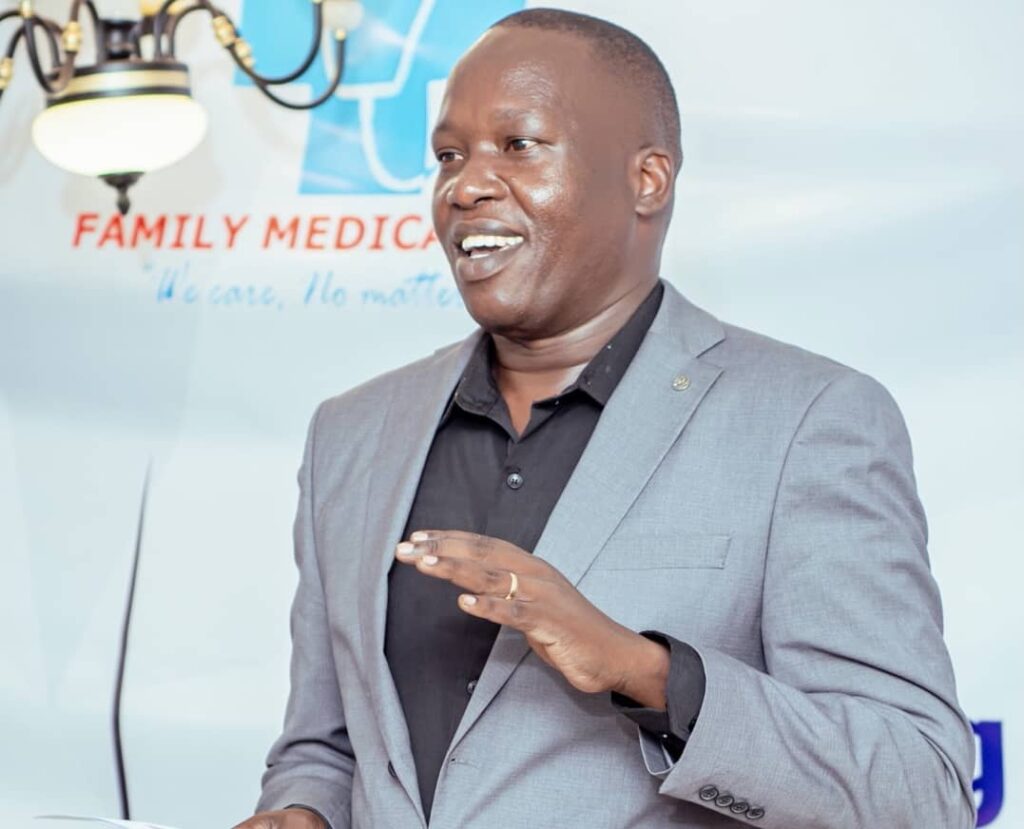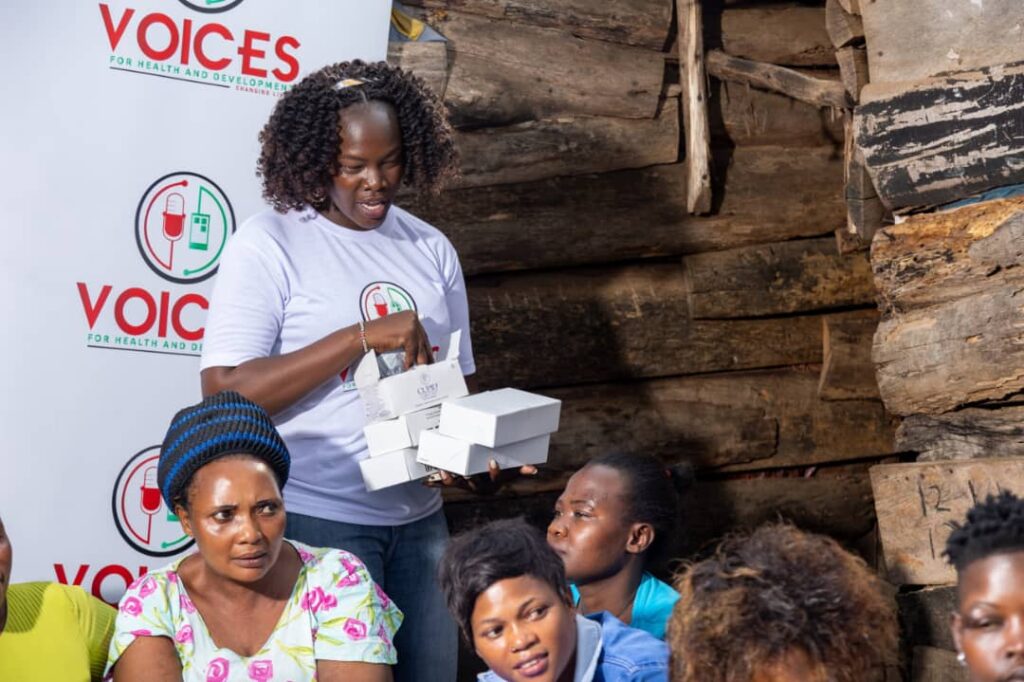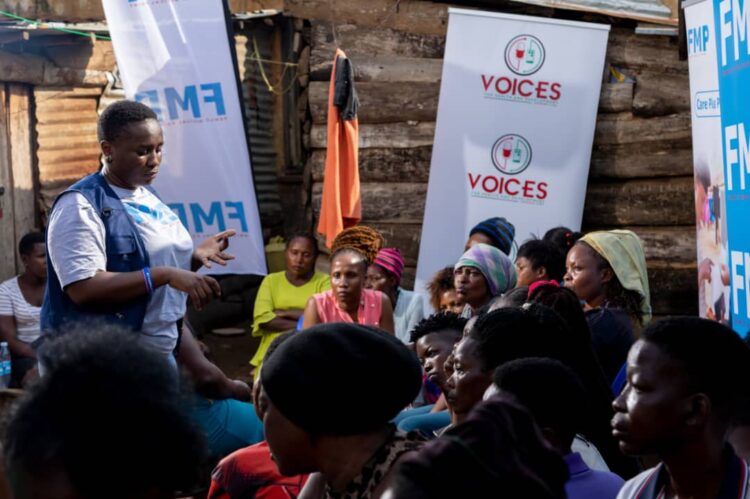Kigungu Landing Site, Entebbe – As the world marked World AIDS Day yesterday, Family Medical Point (FMP) pitched camp at Kigungu Landing Site to share AIDS-related information with sex workers.
The outreach, dubbed “Musawo Session,” attracted over 50 female sex workers and was conducted in partnership with Voices for Development and Safe Abortion Action Fund.
According to Moses Odongo, the Executive Director at FMP, these communities face significant challenges, including stigma, violence, and limited access to crucial health services, he adds that “sessions like these offer a safe space for participants to openly discuss their experiences, challenges, and concerns related to their sexual and reproductive health.”

During the session, participants shared harrowing accounts of violence, stigma, and limited access to health services. One sex worker recounted a brutal encounter with a client who refused to use a condom. “I was beaten to pulp for insisting on using a condom,” she said, her voice trembling with fear.
Najuma Jesca, another participant, revealed that sex workers often experience dryness after serving multiple clients. “We get dry and it’s painful,” she said. In response, the health workers advised the use of sex lubricants to alleviate dryness and prevent friction during intercourse.
Nankabwe Resty expressed concerns about clients removing condoms during intercourse, posing significant health risks. She also commended Family Medical Point (FMP) for their monthly outreach sessions but suggested that it was time to engage men in the conversation.
“All challenges associated with sex work are imposed by men,” Resty said. “Involving men in this session would go a long way in curbing problems associated with commercial sex.”
Despite the challenges, organizations like FMP are working closely with partners to address the structural barriers that hinder access to health services for marginalized populations.
Esther Juliet Apio, the Team Lead at, Voices for Health and Development, noted that access to essential resources, such as condoms, remains inconsistent, and women often face stigmatizing attitudes at health facilities, “This alone is a call to action, we must address the structural barriers that hinder access to health services for marginalized populations.”

The Programs Coordinator at FMP, Ms. Nabwire Pauline, retaliates FMP’s commitment to advocating for the rights of marginalized groups, including sex workers, individuals with post-abortion challenges, and those residing in fishing communities.
As Uganda marks World AIDS Day, it is essential to recognize the progress made in the fight against HIV/AIDS, while also acknowledging the significant challenges that remain.
Rose Namirembe, an FMP Community Peer Mobilizer, believes that FMP’s work has impacted the community since “Sex workers are now able to make informed decisions.”
According to the Uganda AIDS Commission, there are approximately 730 new HIV infections each week in Uganda.
Fishing communities experience an alarmingly high HIV prevalence rate of 22-28%, compared to the national average of 5.4%, according to the Uganda Population-Based HIV Impact Assessment (UPHIA) 2020-2021.
Moses Odong, emphasizes that safeguarding human rights remains pivotal to the effort to end AIDS. “We must work together to dismantle stigma, ensure access to life-saving resources, and empower individuals with knowledge and agency.”
“The endeavor to eradicate AIDS transcends medical statistics; it is a quest for justice, dignity, and equity. Together, let us embrace the right path toward a future where every individual can live a healthy and empowered life.” He added.
Family Medical Point’s (FMP) Musawo Sessions is a monthly community outreach program aimed at providing health education, counseling, and support to marginalized communities, particularly Fishing Communities and Landing sites.
The Sessions cover a range of topics, including HIV/AIDS prevention, condom use, and sexual and reproductive health rights. The program also allows participants to receive free health check-ups, counseling, and referrals to health services.
By empowering marginalized communities with knowledge, skills, and support, FMP aims to promote healthy behaviors, reduce stigma and discrimination, and improve the overall well-being of people living in marginalized communities.





















Discussion about this post